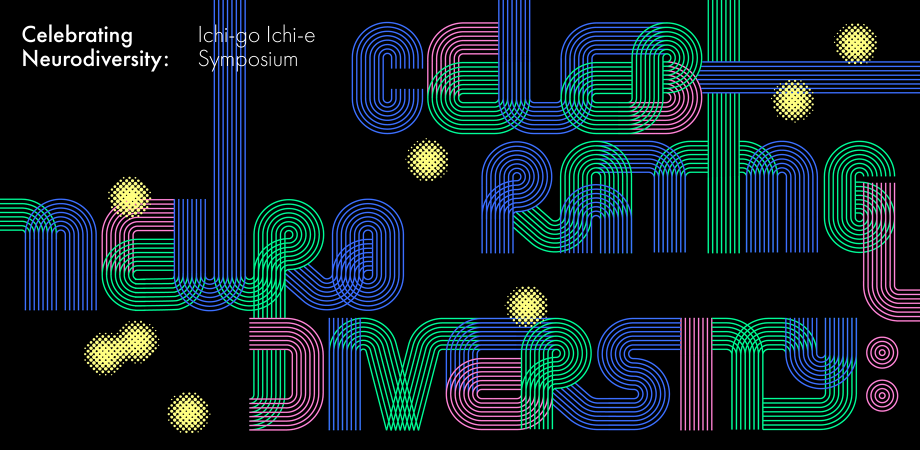Chiba Institute of Technology and the Connected Learning Alliance will be hosting a special symposium on September 21 to celebrate neurodiversity and promote collaborative research in technology.
- When: 15:00 - 17:30, September 21, 2023
- Location: “Dragon Gate” conference hall, 18th floor of the Shibuya PARCO DG Building
- Pre-registration required
- Simultaneous Japanese/English translation will be offered throughout the event.
This groundbreaking symposium will showcase the growing international neurodiversity technology movement – a movement to design and deploy emerging technologies in collaboration with neurodiverse individuals and communities, recognizing their unique strengths and needs. Featuring cross-cultural research that celebrates neurodiversity, the symposium will offer a positive vision for how technology developers can learn from, engage with and support neurodiverse advocates and communities.
Organized by an international coalition of advocacy, academic and technology leaders, this event is part of the Connected Learning in Focus symposium series. It will feature a video address by Temple Grandin, innovative technology projects, the latest thinking of neurodiversity self-advocates, and a panel about fostering the neurodiversity technology movement in Japan, moderated by Joi Ito, President of Chiba Institute of Technology. Simultaneous Japanese/English translation will be offered throughout the event.
Organizers
- Annuska Zolyomi, IDEA Lab, University of Washington Bothell
- LouAnne Boyd, Learn|Adapt|Build, Chapman University
- Joichi Ito, Chiba Institute of Technology
- Mimi Ito, Connected Learning Lab, University of California Irvine
Program
3:00 Welcome
3:15 Keynote Interview with Temple Grandin (video taped)
3:30 Plenary: Growing the Neurodiversity Technology Movement in Japan
4:00 Panel: Neurodiversity Self Advocacy - Strategies and Next Steps
4:20 Showcase: Neurodiversity Technology Innovation
4:45 Closing Announcements
We are pleased to announce a special symposium to celebrate neurodiversity and foster collaborative and cross-cultural technology research. This event will take place in Digital Garage Shibuya on September 21. Japan's growing neurodiversity community and leadership in emerging technology offer an ideal setting for shaping a future through cutting-edge, inclusive practices.
Neurodiversity is a paradigm that recognizes and celebrates the natural diversity of human cognition. Technology has a crucial role to play in building neurodiverse-friendly, community-based approaches to creating social, learning, and employment spaces that break down stereotypes and stigma. This symposium brings together experts working in fields at the intersection of design, advocacy, education, and technology.
Learn about the vision of neurodiversity technology and social inclusion from Joi Ito, President of Chiba Institute of Technology, and international researchers leading their fields in human-computer interaction, inclusive design, and artificial intelligence.The symposium is pleased to host autistic self-advocates from Japan and around the world, plus deliver a video-taped message from Temple Grandin, a pioneer in autism advocacy leader of autism.
The symposium will showcase a vision for how neurodiversity technology research can engage with and support Japanese neurodiverse self-advocates in building connections. State-of-the-art technology research can support connected learning and living to reduce risk of depression and anxiety as well as support emotionally connected relationships at home, school, and work. This one of a kind meeting will jumpstart an international coalition that ignites the neurodiversity technology movement. This coalition fills a need for an inclusive, global forum of divergent stakeholders such as leading AI researchers, technologists, policy makers, and neurodivergent advocates.
Motivation for Symposium on Neurodiversity Technology and Connected Learning
Technology innovation has historically exacerbated society’s biases to exclude those who fall beyond the norm, but has the potential to right the ship to a more humane future. For example, AI-driven technology, such as ChatGPT, is proliferating at a pace that technology experts equate to the amazing stepwise growth as the internet. As called out by HCI ethicists and researchers, without immediate, conscious effort, technology will continue to propagate ableist stereotypes as AI bias and algorithmic injustice. For example, companies are using AI recruiting tools to screen out job candidates based on neurotypical stereotypes, such as erroneously correlating eye gaze with attention and social motivation. Classroom-based AI tools have been used tosurveil students for atypical body movements and brainwave patterns—behavioral and neurological functions that are integral to neurodivergent cognitive processing, sensemaking, and emotional regulation. Despite the fact that surveillance technologies disproportionately harm disabled and neurodivergent people, some researchers and technologists erroneously frame the monitoring of facial expressions and body movements as positive applications of AI, rather than raising these ableist measures as ethical flags. AI tools for diagnosis are reinforcing politics and power dynamics of the medical model of disability while obscuring the stigma of an autism label. The neurodiversity movement offers alternative futures that must begin now.
The neurodiversity technology movement is driven by a coalition of thought leaders in the technology industry, policy, and autism communities. This initiative will unite diverse technologies, cultures, and lived experiences. With the urgent need for societal inclusion of neurodivergence paired with the rapid evolution of AI-driven technology, we are at a crucial confluence point where we must design emerging technology to be neurodivergent-inclusive from the ground up. Deep considerations about what it means to design technologies that provide acceptance, access to support, inclusive education, and ultimately celebrate neurodiversity are now an international imperative.
Our mission is to propel meaningful cultural change through the neurodiversity technology experiences by using connected learning as a strategic framework. By building upon shared values, integrating research with practice, and focusing on community-based, inclusive design of technology as well as sustainable programs, this initiative will foster communication and collaboration between leading neurodiversity researchers, educators, technologists, and neurodiverse communities. The initiative will build capacity for conducting and sharing cutting-edge research related to the neurodiversity ecosystem—including assistive, accessible, inclusive, and celebratory technology innovations—to address the goals of neurodiverse, inclusive societies.
